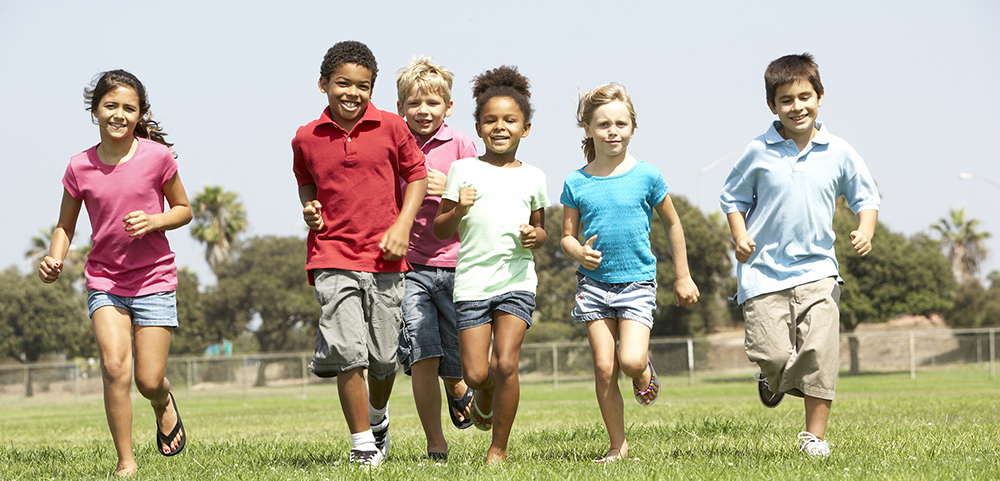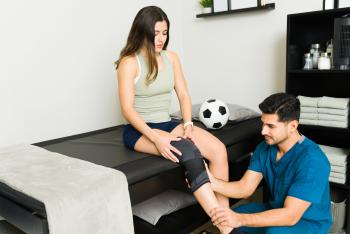Sports medicine and physical therapy both play vital roles in injury recovery, but they serve...
Read MoreEffective Monday, January 5th, Inspira Health is now at Yellow Alert Status: Masks for staff, patients and visitors in all high-risk areas across our facilities are strongly recommended.


Childhood can be full of a lot of bumps, bangs and falls. Watching your child take a hit to the head can be scary for parents, fearful that they sustained a head injury. As children grow, they may take up contact sports that can increase their chances of a direct or indirect blow to the head.
A concussion is a traumatic brain injury caused when the brain experiences blunt trauma that temporarily interferes with its functioning. Your child doesn’t have to lose consciousness to experience a concussion, and there’s no set number of symptoms that automatically indicate a concussion. Sometimes symptoms can take hours or days to show up, so parents should stay on careful watch if they know their child took a blow, bump or jolt to the head.
Symptoms of a concussion include uneven dilated pupils, headache, vomiting, blurred vision, dizziness, poor coordination or balance, slurred speech, irritability, difficulty answering questions, difficulty following directions, anxiety or depression, sensitivity to light or trouble sleeping. Your child’s doctor may conduct a neurological examination, cognitive testing or imaging testing to make a diagnosis.
Rest is the most common recommendation for treating a concussion to make sure your child’s brain can both physically and mentally recover. You’ll want to restrict physical activities and also limit activities that require thinking and mental concentration because this type of strain can worsen symptoms. That means keep the television and video games off and let your child’s teachers know that reduced school work and limited computer use is necessary. Your doctor may even recommend they have shortened school days. They should avoid anywhere with loud noises, music or bright lights like parties, concerts, pep rallies or school football games.
Most children who suffer a concussion recover in a few days to a few weeks with a prompt diagnosis. Not following concussion guidelines after an injury can cause continuation or worsening of symptoms and even post-concussive syndrome where symptoms can last months to years after the initial injury.
If your child is active in sports, consider getting baseline testing done to measure their memory and reaction time. A baseline test will be helpful for doctors if a concussion is suspected to spotlight a brain injury. Always make sure your child wears the proper protective gear, even if they’re just playing recreational sports with friends.
Early intervention of rehabilitation therapies, once approved by a physician, can significantly improve recovery following a concussion. Through a thorough assessment and an individualized treatment program, therapists can help patients safely return to learn, play and work. Physical therapists, occupational therapists and speech therapists are health professionals that can be part of the treatment team dependent upon a person’s symptoms. Treatment may include vestibular rehabilitation, vision therapy, exercise, manual therapy and cognitive therapy. The goal is to help a person recover as quickly as possible and return to normal level of activity.
Inspira’s rehabilitation specialists provide personalized concussion care if you believe your child has a concussion. To schedule an appointment with one of Inspira’s rehabilitation programs, call 1-800-INSPIRA.

Sports medicine and physical therapy both play vital roles in injury recovery, but they serve...
Read More
Whether you’re a weekend warrior or a seasoned competitor, a few strength and mobility tips can go a...
Read More
Beat seasonal allergies and enjoy a sneeze-free summer with our ultimate survival guide full of...
Read More